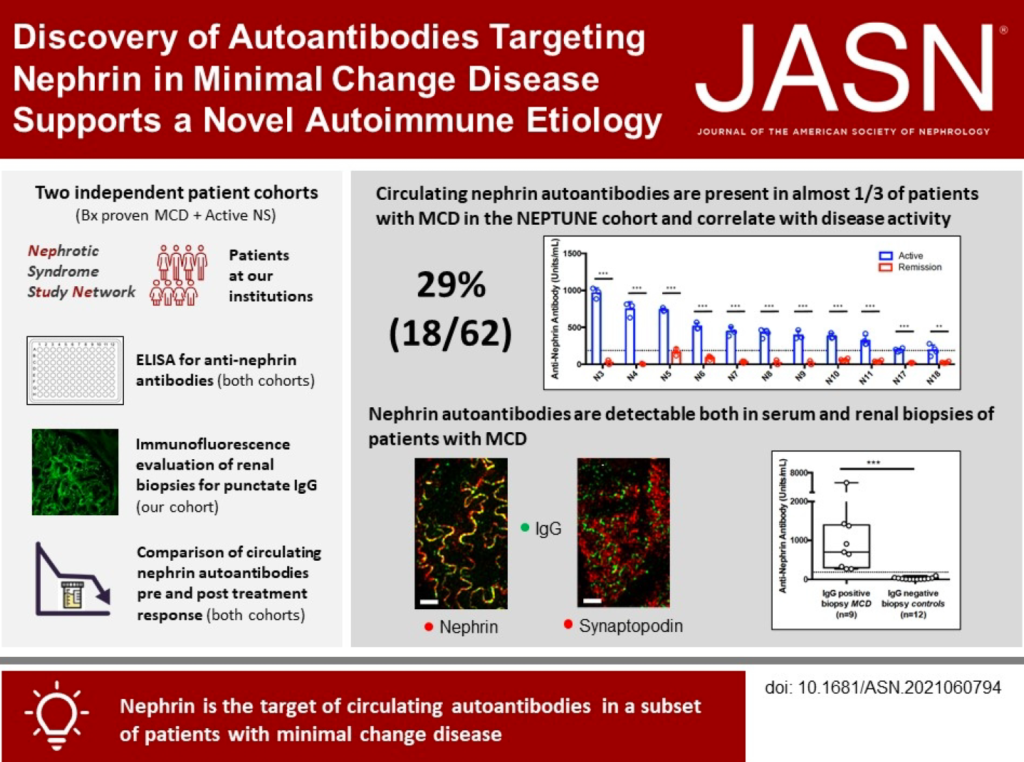Abstract:
Background Failure of the glomerular filtration barrier, primarily by loss of slit diaphragm architecture, underlies nephrotic syndrome in minimal change disease. The etiology remains unknown. The efficacy of B cell-targeted therapies in some patients, together with the known proteinuric effect of antinephrin antibodies in rodent models, prompted us to hypothesize that nephrin autoantibodies may be present in patients with minimal change disease. Methods We evaluated sera from patients with minimal change disease enrolled in the Nephrotic Syndrome Study Network (NEPTUNE) cohort and from our own institutions for circulating nephrin autoantibodies by indirect ELISA and by immunoprecipitation of full-length nephrin from human glomerular extract or a recombinant purified extracellular domain of human nephrin. We also evaluated renal biopsies from our institutions for podocyte-associated punctate IgG colocalizing with nephrin by immunofluorescence Results In two independent patient cohorts, we identified in a subset of patients with minimal change disease circulating nephrin autoantibodies during active disease that were significantly reduced or absent during treatment response. We correlated the presence of these autoantibodies with podocyte-associated punctate IgG in renal biopsies from our institutions. We also identified a patient with steroid-dependent childhood minimal change disease that progressed to end-stage kidney disease; she developed a massive posttransplant recurrence of proteinuria that was associated with high pretransplant circulating nephrin autoantibodies. Conclusions Our discovery of nephrin autoantibodies in a subset of adults and children with minimal change disease aligns with published animal studies and provides further support for an autoimmune etiology. We propose a new molecular classification of nephrin autoantibody minimal change disease to serve as framework for instigation of precision therapeutics for these patients.

